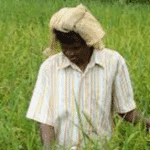In News
- While the commercial use of genetically-modified (GM) mustard continues to face controversy, the Punjab Agricultural University (PAU) based in Ludhiana, is encouraging farmers to adopt canola farming by developing “canola villages” in niche areas to produce and sell the oil.
What is Canola?
- Canola is the international trade name for mustard carrying lower levels of erucic acid — less than 2% —in oil and is considered as one of the healthiest options.
- It is believed by experts that canola is one of the best possible options available to lead a “yellow revolution” in Punjab which can emerge as the canola hub of the country.
Also Read: Genetically Modified or GM Crops- Boon or a Bane?
Health issues
- Due to increasing health issues and awareness, there’s now a growing demand for canola oil across the country.
- During 2014-15, around 3,56,000 tons of canola oil was imported and sold in Indian markets.
Advantage to the farmers
- Farmers in Punjab can benefit from increasing demand for canola oil as the State has a significant area under canola (mustard and rapeseed) cultivation.
- High-yielding international standard canola-quality varieties of gobhi sarson (rapeseed) —GSC- 6, GSC- 7 and mustard RLC- 3 have been released.
- These are capable of meeting canola oil demand of the entire country.
- In Punjab, rapeseed-mustard was sown in 31,000 hectares, which reaped a production of over 38,000 tonnes during 2014- 15.
- As per trade terms, toria, gobhi sarson and taramira are categorised as rapeseed, while raya and African sarson as mustard.
Read in Hindi: कैनोला तेल उत्पादन और इसकी क्षमता
Yield potential
- GSC-7 has demonstrated excellent yield potential. If sown on time, economic returns from GSC-7 can at least equal those of wheat.
- Besides, the country’s first yellowseeded canola- quality Indian mustard variety named RLC- 3 has also been released. There’s no lack of these seed at PAU and farmers can get them at a minimal price.
- The country’s annual edible oil demand stands at nearly 22 million tonnes and is growing by 3% to 4% per year, but India meets only about 40% of it’s total edible oil demand. This growing demand-supply gap necessitates large imports from other countries.
- During 2015-2016, India imported about 16 million tonnes of edible oil at an estimated expenditure of Rs.75,000 crore. Under this scenario, attaining self-sufficiency in the edible oil sector is important to reduce current deficit and to ensure edible oil security for the increasing population.
Problems with Canola farming
- However, in absence of assured market and assured price for their produce from government agencies, farmers have reservations.
- Canola is a viable alternative for wheat but the only problem is assured returns.
- If the government sets up an effective system to provide assured purchase, canola farming can thrive in Punjab.
- Most area in Punjab during the rabi (winter) season is under wheat and farmers are reluctant to adopt any other crop due to assured marketing, low risk factors and largely mechanised farming techniques. Mustard farming is far more labour intensive, especially for weeding during harvest.
Canola oil can increase profits
- While canola seeds can be sold at the mandi, extraction of oil from canola can help farmers increase profits.
- Canola business holds good potential at the local level since edible oil is needed in every household. With increasing health awareness, most people are ready to pay for quality products.
Crop diversification
- Adopting canola cultivation would give impetus to crop diversification, something that Punjab needs urgently.
- Farm experts have been pushing for crop diversification in Punjab for a while now. They have also been urging the government to take steps to reduce the cultivation of water- intensive paddy (rice) to keep a check on the depleting water table.











